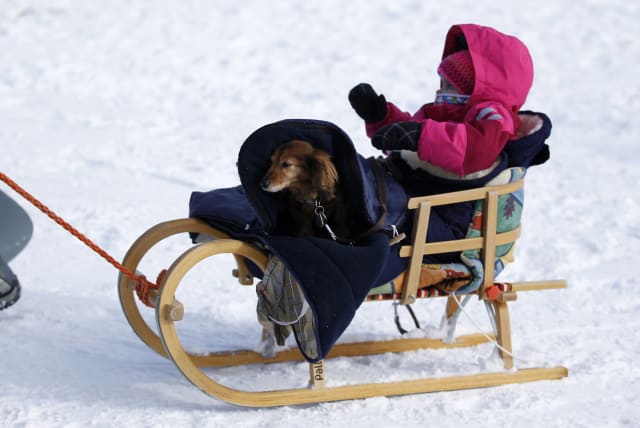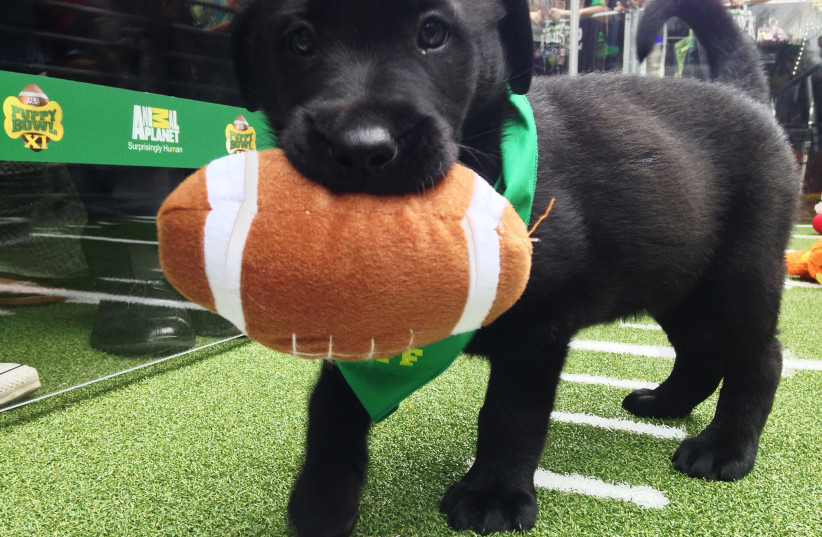Toddlers can help dogs reach treats spontaneously, new study finds

A new study, from Duke University, found that toddlers are able to empathize and help animals when given the chance.
Toddlers will help dogs reach toys and snacks, a study published this month reported, showing toddlers have the capacity to extend feelings of empathy to animals.
The new peer-reviewed study, which sought to understand whether children can help dogs spontaneously, was led by Dr. Rachna Reddy, a postdoctoral student at Duke University.
Children's prosociality can extend beyond humans
The study, which was made up of 97 toddlers, supported the scientists' hypothesis that "children’s early-developing proclivities for goal-reading and prosociality extend beyond humans to other animals."
The experiments, conducted with three gentle dogs reportedly named Fiona, Henry and Seymour, took place at the University of Michigan’s child laboratory between 2015 and 2020.
The study revealed toddlers helped dogs to access things that were wanted but out of their reach, like toys and treats, 50% of the time. The toddlers also offered the dogs toys and treats that were ignored by the dog 26% of the time.
Children with dogs at home were more likely to help the pups access the out-of-reach item.
The experiment was more than just a chance to watch some cute dogs and toddlers being wholesome, as Dr. Reddy pointed out "However, we observed as early as 2 years of age, children behave in ways showing they are not only able to read the goal-directed behavior of another animal but can and do employ that knowledge to help an animal reach its own goal."
“In addition to informing us about childhood helping, these early childhood behaviors may have important evolutionary significance.”
Toddlerhood, also commonly known as 'the terrible twos,' is an important developmental stage where children are in the process of learning key skills like sharing and empathy. The fact these kids can empathize with a different species is both heartwarming and a wholesome confirmation of human nature.
The experiments are expected to continue as researchers seek to understand the emotions that underlie children’s motivation to help dogs, how these motivations and cognitive attributions are shaped by culture, and how all of the above change throughout development.
Jerusalem Post Store
`; document.getElementById("linkPremium").innerHTML = cont; var divWithLink = document.getElementById("premium-link"); if (divWithLink !== null && divWithLink !== 'undefined') { divWithLink.style.border = "solid 1px #cb0f3e"; divWithLink.style.textAlign = "center"; divWithLink.style.marginBottom = "15px"; divWithLink.style.marginTop = "15px"; divWithLink.style.width = "100%"; divWithLink.style.backgroundColor = "#122952"; divWithLink.style.color = "#ffffff"; divWithLink.style.lineHeight = "1.5"; } } (function (v, i) { });

